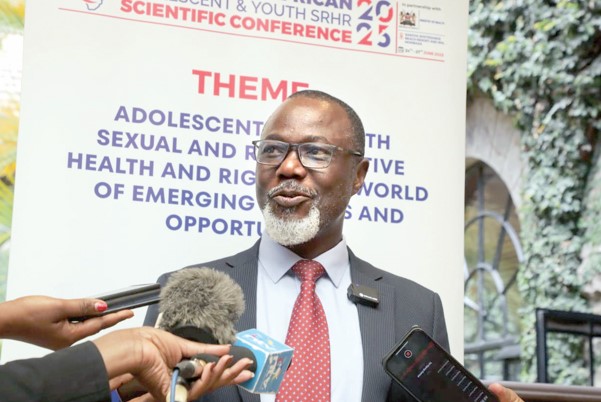Rethink reproductive health rights campaign, experts say
By George Kebaso, May 24, 2025Kenya and countries in the region have little option but to rethink how they will confront the numerous challenges hindering the youth from their sexual reproductive health rights amid a cocktail of challenges, key among them, the growing funding gap after donors started exiting.
“The challenge is clear,” sexual reproductive health experts drawn from various civil society organisations and academia said yesterday.
The experts are calling for urgent measures to address these challenges in order to safeguard the future populations.
This group, which in Africa is around 60 per cent of the continent’s population are faced with lack of access to youth-friendly Sexual Reproductive Health Rights (SRHR) services, digital misinformation, the impact of climate change on health systems, and the rise of anti-rights movements.
“This is threatening progress in gender and health equity,” the civil society groups under the Reproductive Health Network of Kenya (RHNK) noted ahead of the eighth Pan-African Adolescent and Youth Sexual and Reproductive Health and Rights Conference slated for June 24-27, 2025 in Mombasa.
Kenya, and Africa more broadly, they pointed out, is under pressure from several interlinked forces: rapid population growth, climate change, environmental degradation, and continuing gaps in access to sexual and reproductive health services.
“These pressures are particularly acute for adolescents and young people, who often find themselves without the resources or support they need to thrive,” said Prof Joachim Osur, the Vice Chancellor, Amref International University.
In terms of technical expertise, he said, Kenya is doing well, but funding is always a problem.
Osur, who is a professor of sexual and reproductive health, lamented that lack of funding has affected government policies and plans.
However, what’s even disheartening is that mostly is the diminishing donor funding.
“The political goodwill is also sometimes wavering, but we are asking the politicians to trust what we say because it’s based on evidence and use it to challenge governments to fund the SRHR services,” he said.
He also called on Kenyan communities to rejuvenate education through village committees, family level gatherings and in schools under parents and guardians’ associations.
This form of education, he noted, is a very African initiative where young people used to be taught by their grandmothers, uncles and aunts among other elderly members of the society on issues around sex. In some communities, like in Uganda, Osur explained they even demonstrated practically how and when to have sex.
“However, now those traditional systems have fallen apart. Nobody talks to their grandmother about sex, and the fact that in most African countries we have not embraced education and institutionalised it, is a major concern as well,” he said, noting that this absence creates young people who are not equipped with knowledge, who in turn troop to the internet where they access harmful information such as pornography at will.
“There is really an urgent need for countries, for churches, for communities to talk about how we equip young people with the right information,” he added.
Young people between the ages of 10 and 24, make up 35 per cent of Kenya’s population.
“That’s more than a third of our people. They are energetic. They are ambitious. They are full of ideas. But they are also vulnerable,” said Dr Mohamed Sheikh, Director General, National Council for Population and Development (NCPD).
According to the latest Kenya Demographic and Health Survey (KDHS), one in five women between the ages of 15 and 49 has an unmet need for family planning. Teenage pregnancy remains a major issue, affecting one in six girls between 15 and 19.
And too many young people, Dr Sheikh noted, still don’t have access to youth-friendly health services that could make a meaningful and impactful difference in their lives.
“This isn’t just a health problem. It’s a development problem. When adolescents lack the knowledge and tools to make informed choices about their health and future, the cost is not just personal—it’s national. We all lose out. As a society, an economy, and as a nation,” he said.
According to him, NCPD is committed to ensure that Population, Health, Environment, and Development (PHED) is not just a policy concept, but a practical approach embedded in national planning.
“This upcoming conference is not just another typical summit, but a platform for action. A place where voices from across Africa will come together to share what’s working and what’s not, explore new innovations, and strengthen coalitions across sectors and regions,” he said.
Nelly Munyasia, the RHNK Executive Director said to unlock the demographic dividend—a moment in time when a large, healthy, and educated youth population can drive significant economic growth—the Kenyan society must ensure that young people, especially girls, have the information, access, and power to make decisions about their own futures.
Munyasia said the outcome of the conference will witness an establishment of a united front to ensure every young person has access to the health services, education, and support they need to thrive in an increasingly complex world.
